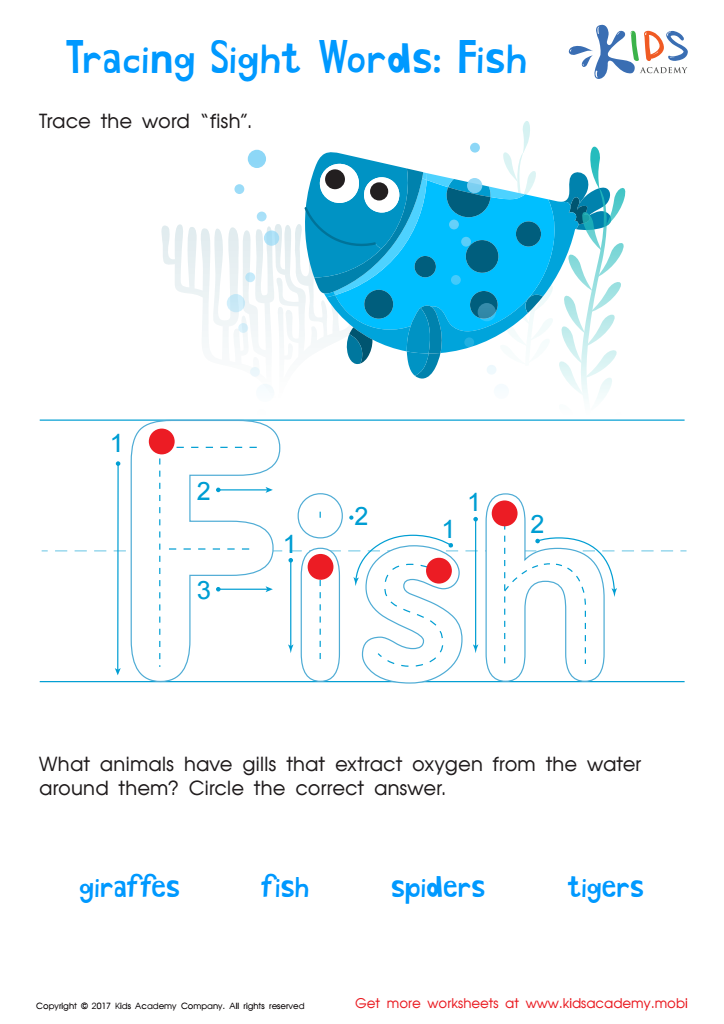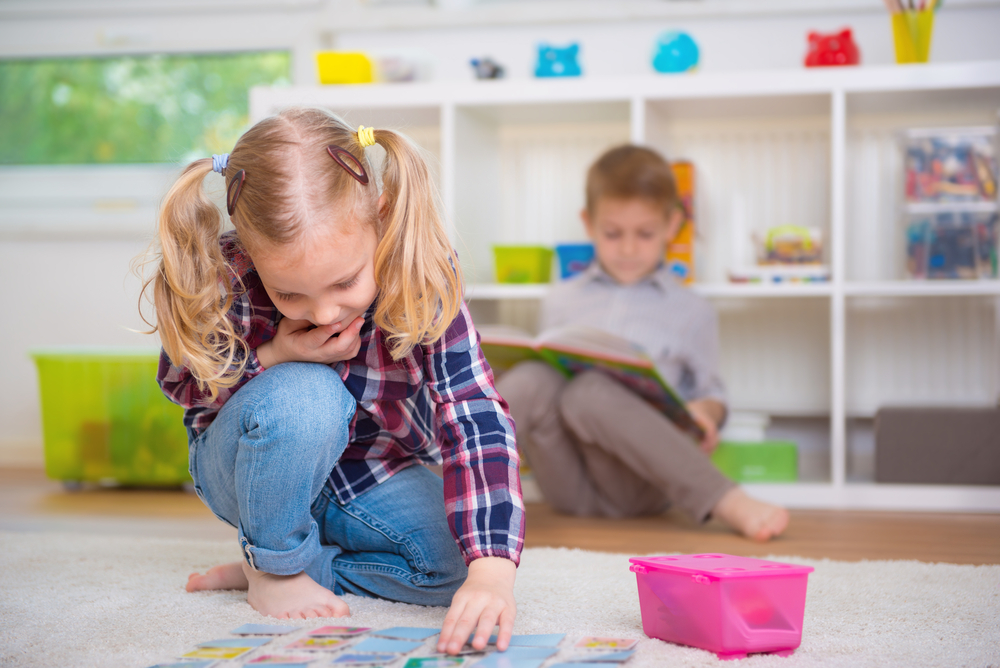Reading proficiency Normal Worksheets for Ages 3-6
9 filtered results
-
From - To
Enhance your child's reading journey with our meticulously designed Reading Proficiency Worksheets tailored for ages 3-6. At Kids Academy, we aim to make early literacy a joyful and engaging experience. Our worksheets cover vital skills such as alphabet recognition, phonics, and basic word formation, ensuring a solid foundation for young learners. These age-appropriate activities are created to stimulate interest, promote perseverance, and build confidence in reading. Whether in a classroom or at home, our worksheets offer essential practice to help your child become a proficient and enthusiastic reader. Let Kids Academy be your partner in nurturing a love for reading from the very start!
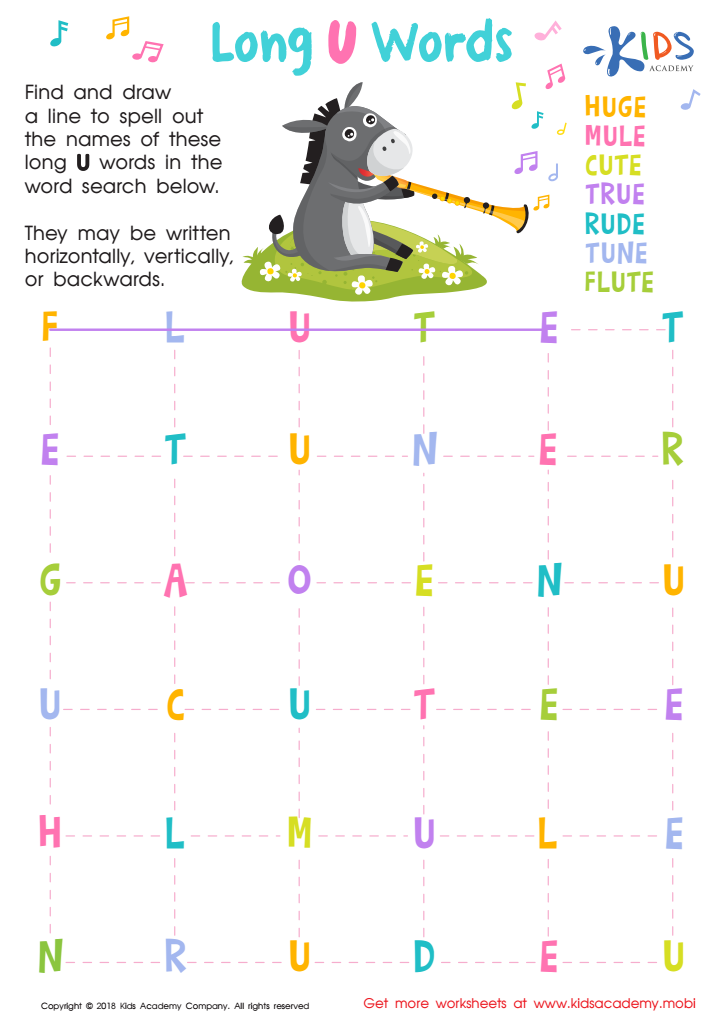

Long /u/ Words Worksheet
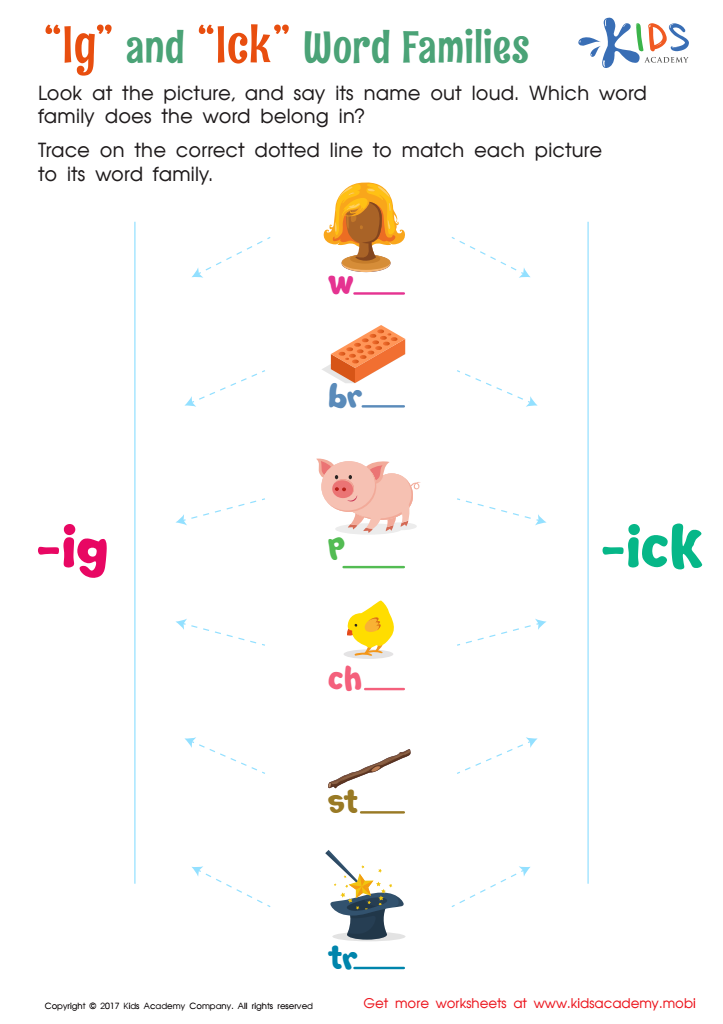

Words Families "ig" and "ick" Spelling Worksheet
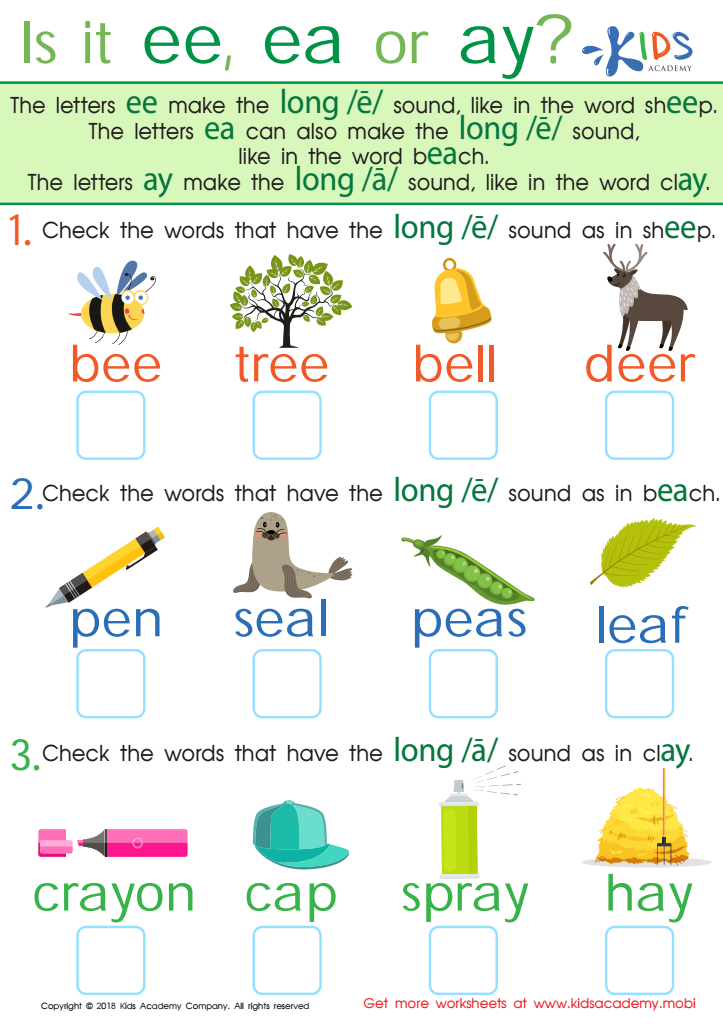

Is It EE, EA, or AY? Worksheet
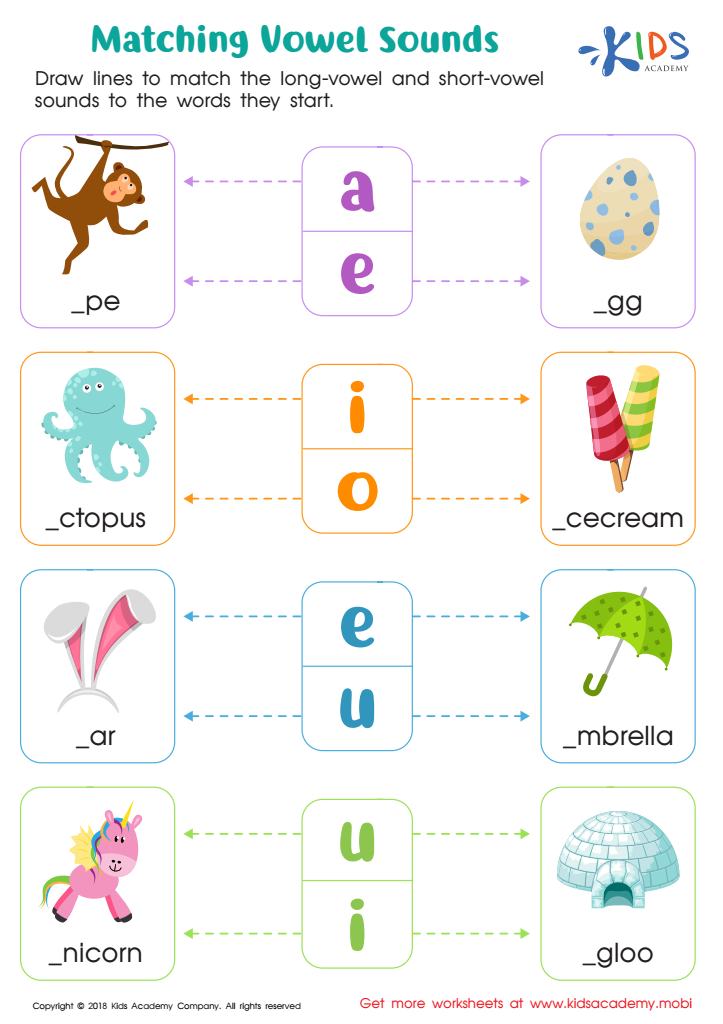

Matching Vowel Sounds Worksheet


Long and Short U Worksheet
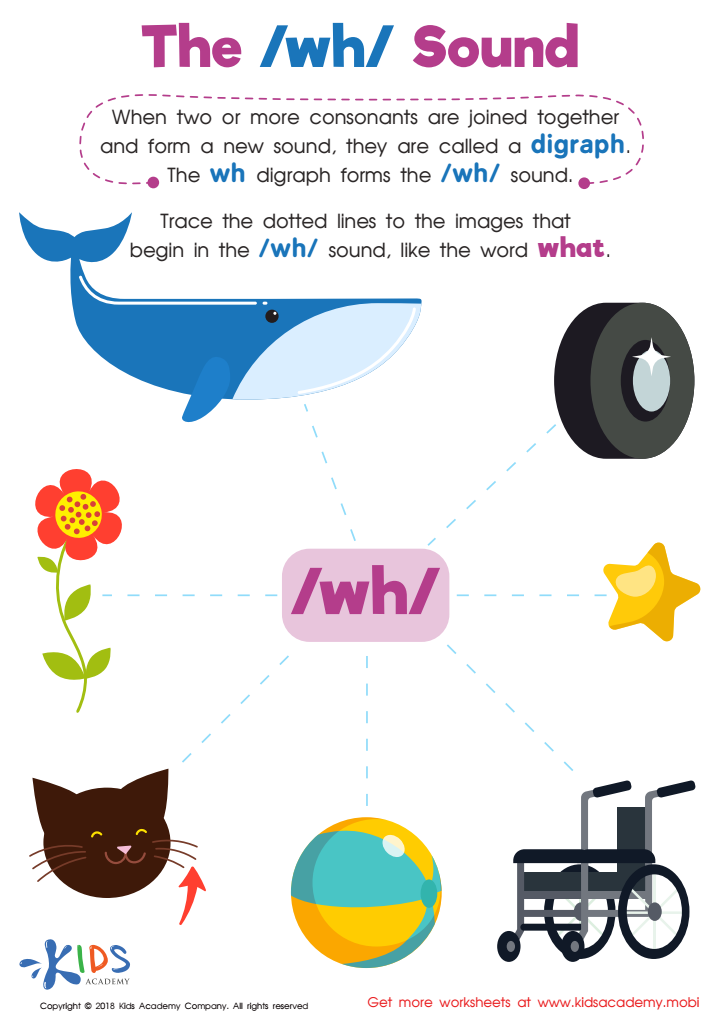

The /wh/ Sound Worksheet
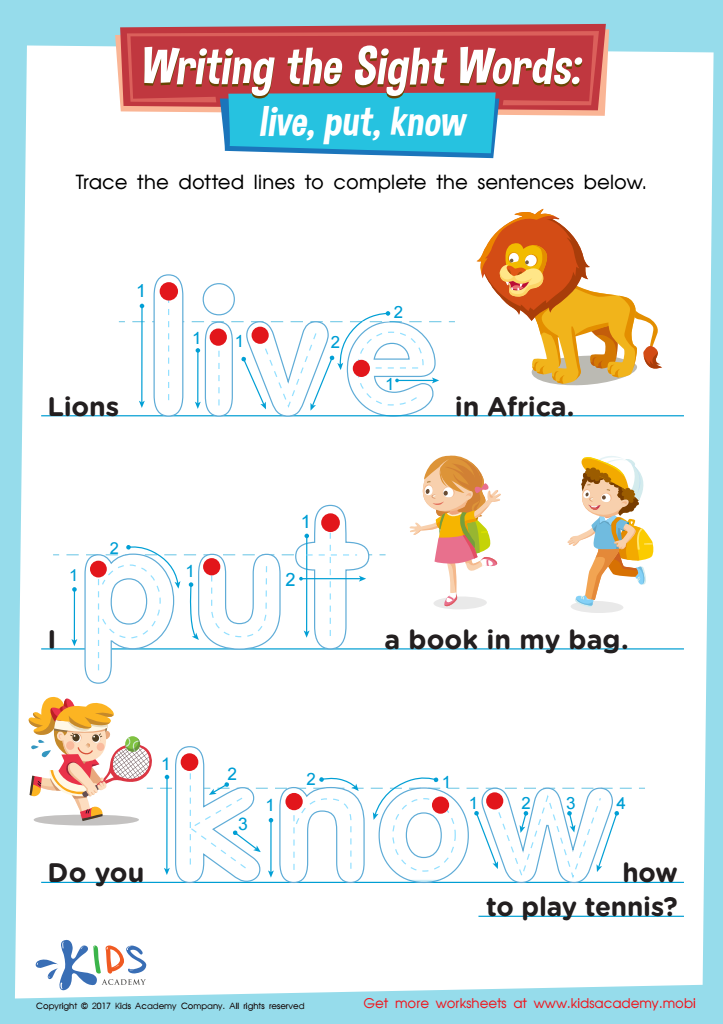

Live, Put, Know Printable Sight Words Worksheet
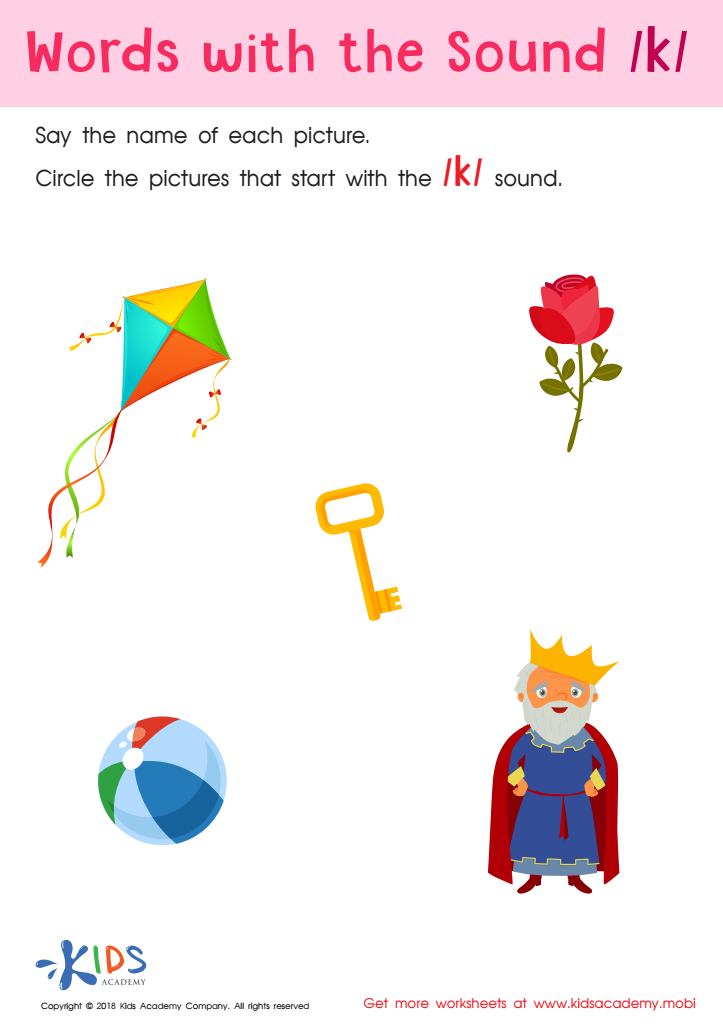

Words with sound k Reading Worksheet
Parents and teachers should care deeply about reading proficiency for children ages 3-6 because early literacy skills form the foundation for future academic success and lifelong learning. At this formative age, children's brains are exceptionally receptive to language acquisition. Proficiency in reading at an early stage sets the groundwork for not only understanding texts but also for broader cognitive development, including critical thinking, attention span, and memory.
Early reading skills are directly correlated with success in school. Children who develop strong reading abilities are more likely to perform well across all subjects, from mathematics to science, as reading is integral to understanding and completing various tasks. Moreover, early exposure to reading boosts vocabulary and comprehension skills, enabling children to articulate their thoughts effectively and understand others.
On a social-emotional level, reading proficiency enhances self-confidence and fosters a love for learning. It opens doors to new worlds and ideas, fueling curiosity and imagination. Children who struggle with reading early on often face significant challenges and frustration in later schooling, which can lead to a negative attitude toward education and lower self-esteem.
Thus, by prioritizing and supporting reading proficiency from ages 3-6, parents and teachers are investing in a child's future academic achievements, emotional well-being, and overall potential to lead an informed and engaged life.
 Assign to My Students
Assign to My Students

